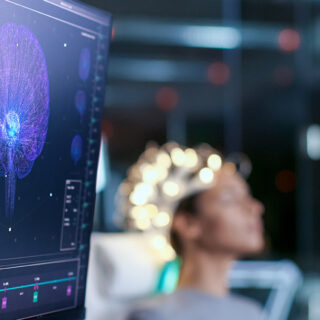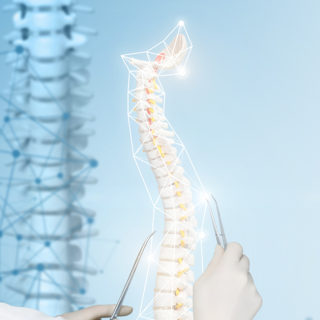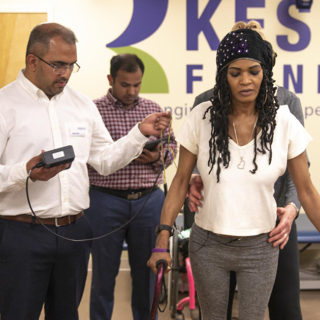One of the most difficult aspects of having Spinal Cord Injury (SCI) isn’t only the fact that the person is immobilized, but SCI also causes hypotension or chronic low blood pressure. This means patients are unable to do things independently without passing out.
“People with severe spinal cord injury – especially when it occurs in a higher level in the spine – have problems with blood pressure regulation to the point that it becomes the main factor affecting quality of life for them,” said Glenn Hirsch, M.D., professor of cardiology at the University of Louisville told Innovation & Tech Today. “Some cannot even sit up without passing out. They are forced to use medications, compression stockings, or abdominal binders to maintain an adequate blood pressure.”
Hirsch and researchers at the Kentucky Spinal Cord Injury Research Center discovered that Epidural Stimulation can elevate blood pressure in SCI patients who suffer from chronic hypotension. The research involves four research participants with chronic, motor complete, cervical SCI, who have persistent hypotension or low resting blood pressure. They went through the Epidural Stimulation Treatment with electrodes implanted on their spinal cord. During the five two-hour sessions, participants were able to gain normal blood pressure. When the patients seized using the stimulator device, the low blood pressure returns and when they reuse it, blood pressure normalizes again.
According to Innovation & Tech Today, Stefanie Putnam, one of the research participants with SCI observed that her blood pressure caused her to lose consciousness with simple activities.
“It prevented me from participating in activities, from talking on the phone, from sitting at a table and eating food. I had trouble breathing, trouble swallowing, trouble carrying on a conversation,” Putnam said. “I was passing out periodically – six or more times a day. Then I would have to tilt back in the chair for two hours.” To prevent it from happening, she took medication, wore a tight corset, and drank caffeine which didn’t help her. She would frequently faint. After Epidural Stimulation Treatment, she regained her normal blood pressure which turned her life for the better.
“I went from feeling like I was glued to the floor to elevated – as though gravity was not weighing me down. I feel alive!” she added.
As proven by the Kentucky Spinal Cord Injury Research Center, Epidural Stimulation coupled with activity-based training also helps patients with SCI with other aspects of their lives, including voluntary movement, standing and stepping, improved bladder, bowel, and sexual function. These are the common difficulties that SCI patients had to face everyday, but would improve with the help of Epidural Stimulation.
However Harkema, the leading author of the research, said that there is still a need for more tests including more patients to prove whether the Epidural Stimulation will be able to impact patients beneficially for the long- term and the team is doing ongoing research to prove this factor.













